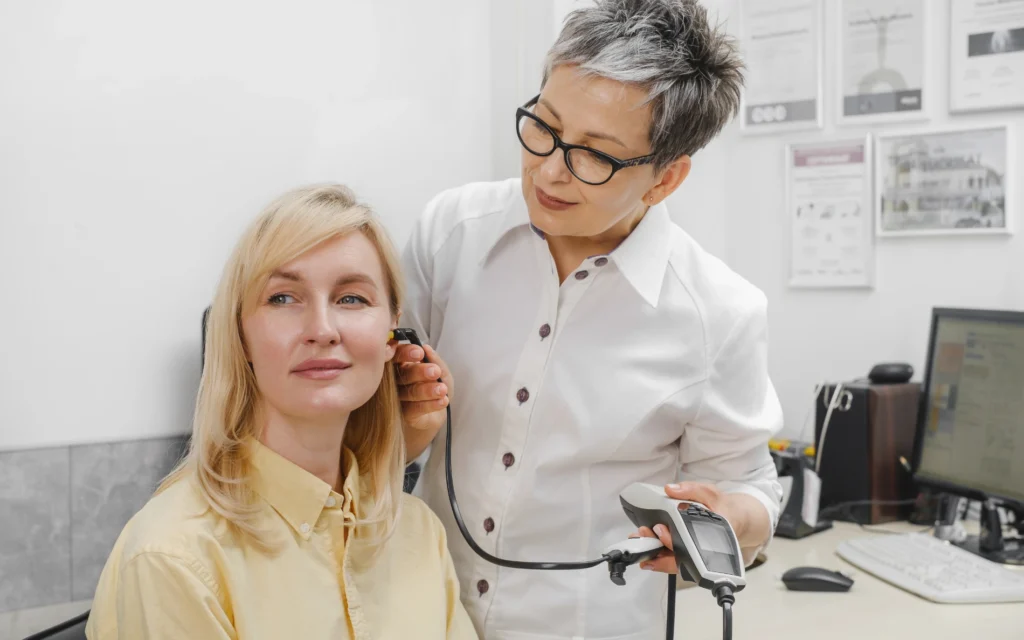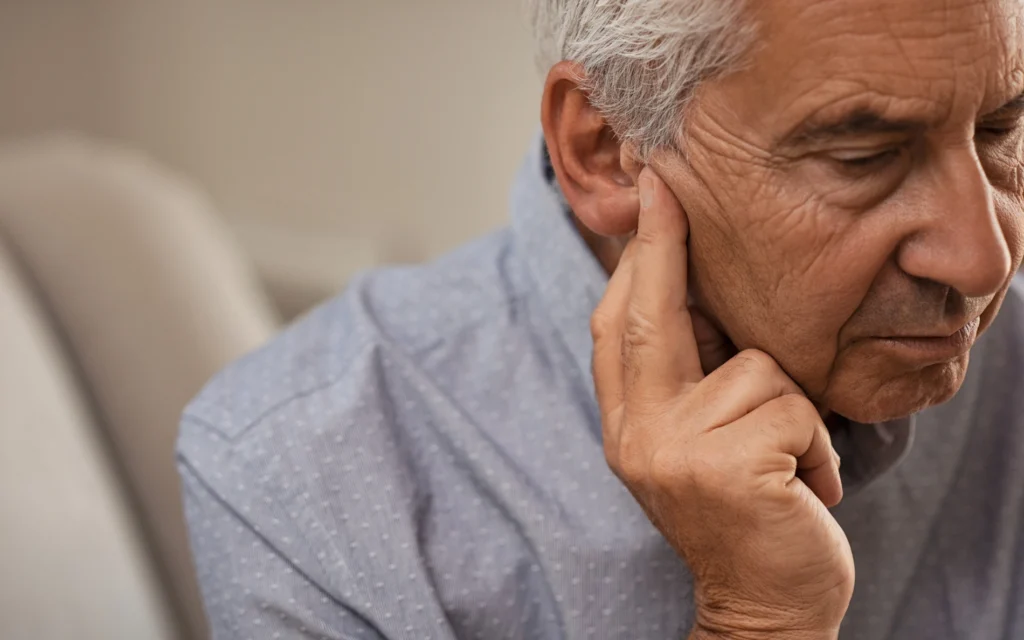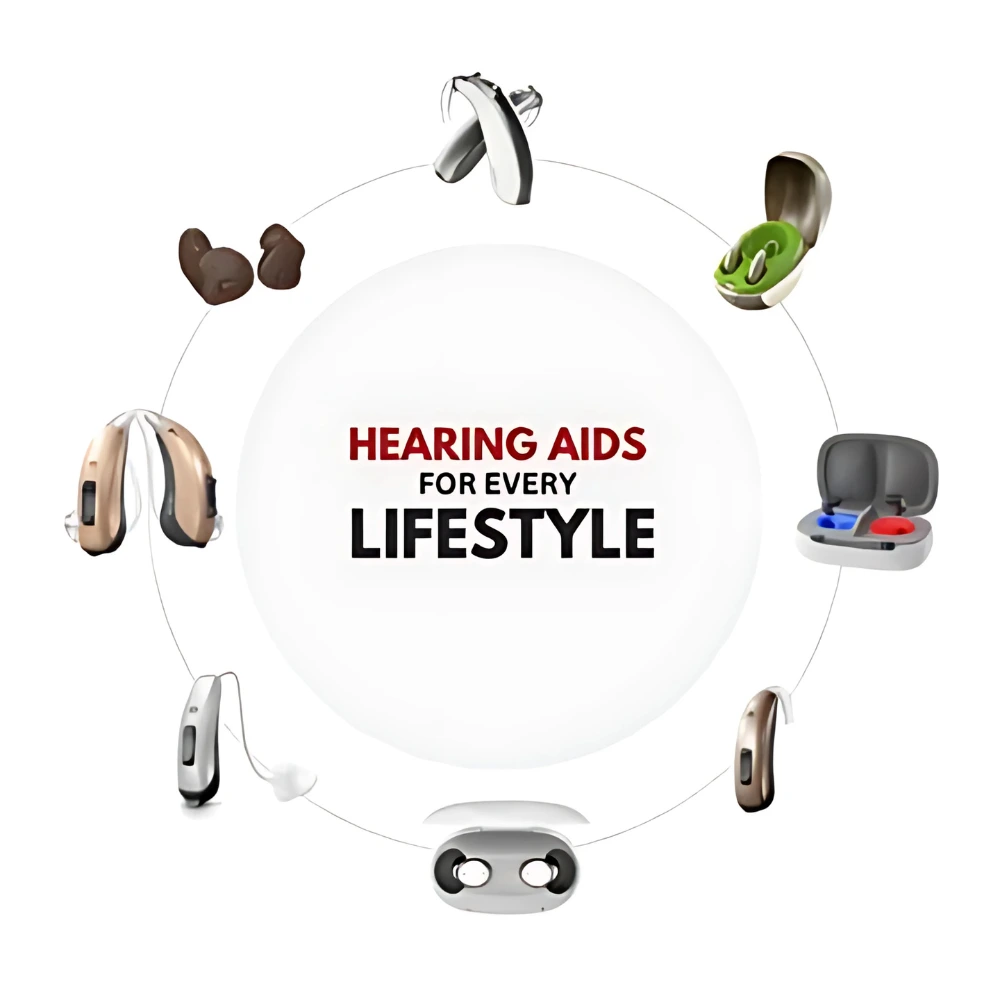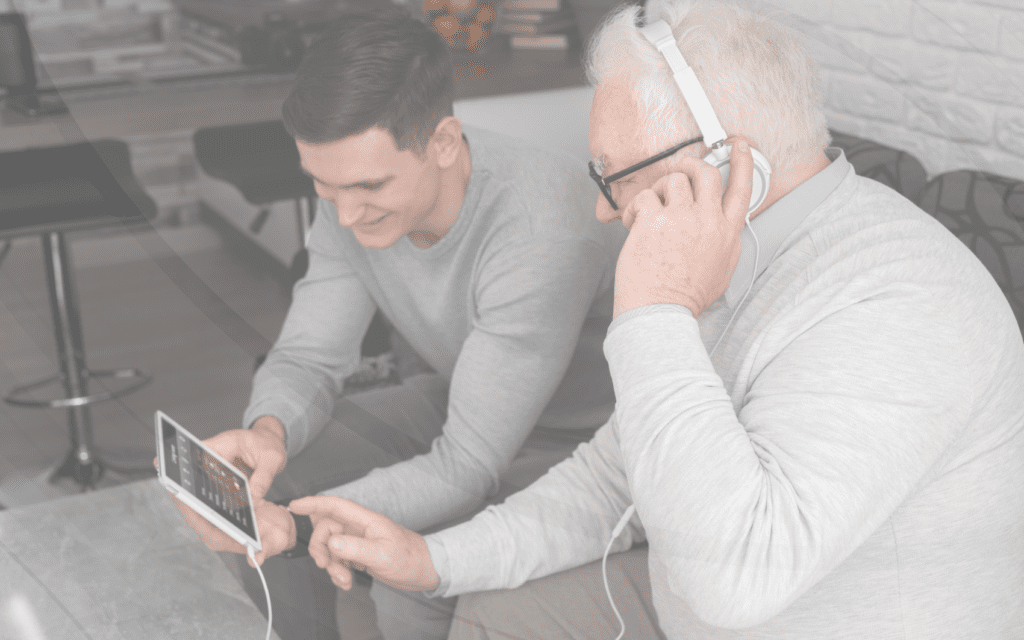Home » Hearing Aids » Hearing Aids For Senior Citizens
Hearing Aids for Senior Citizens

Early Signs of Hearing Loss in Seniors
- Frequently asking people to repeat themselves
- Turning up the TV or phone volume higher than usual
- Struggling to follow group conversations
- Avoiding social settings due to hearing difficulties
- Complaining about people "mumbling"
How Hearing Loss Affects Senior Citizens
- Social isolation – Avoiding friends and family due to difficulty following conversations
- Cognitive decline – Studies link hearing loss with a higher risk of dementia
- Safety concerns – Missing doorbells, alarms, or warning sounds
- Mental health – Increased risk of depression and anxiety

Understanding the Age-Related Hearing Loss
Why Seniors Should Choose Hearing Aids
- Better communication: Stay active in conversations without asking people to repeat themselves.
- Improved mental sharpness: Hearing well helps the brain stay engaged.
- Safer navigation: From crossing streets to hearing smoke alarms, hearing aids enhance safety.
- Emotional wellbeing: Less frustration and more confidence in social settings.
Choosing the Right Hearing Aid for Seniors
- Behind-the-ear (BTE): Common for seniors; easy to handle and maintain.
- In-the-ear (ITE): Custom-fit, more discreet, but can be harder for those with dexterity issues.
Maintaining Your Hearing Aids
- Daily cleaning: Wipe down your hearing aids with a soft cloth to remove earwax and moisture.
- Dry storage: Use a drying kit or store in a moisture-free container at night.
- Scheduled servicing: Visit your audiologist for regular tune-ups and sound adjustments.
- Battery management: For rechargeable models, charge them daily. For battery-operated ones, replace batteries when needed.
FAQs
What are the limitations of hearing aids?
Hearing aids can’t restore natural hearing . Their effectiveness also depends on the type and severity of hearing loss. However, the best hearing aids for senior citizens today come packed with features that significantly enhance hearing in most daily situations.
How long should hearing aids be worn daily?
Ideally, hearing aids for senior citizens should be worn during all waking hours, especially in conversations, social settings, and outdoor environments. Regular use helps the brain adapt faster and makes the transition smoother.
How often should my hearing aids be checked?
It’s recommended to get your hearing aids professionally checked every 6 months. Alongside, annual hearing tests help track changes. If you’re using an ear machine for senior citizens, keep an eye on battery life and sound quality; early service prevents long-term issues.
Which hearing aid is best for senior citizens?
The best hearing aids for senior citizens (yes, even with that common typo!) combine comfort, ease of use, and clarity. Models like BTE with rechargeable batteries and smart sound adjustment features are often top-rated. Consulting an audiologist will help you find the best hearing aid for the elderly based on individual needs.
Hearing well is not just about sound; it’s about connection, safety, and dignity. If you or your loved ones are noticing signs of hearing loss, don’t wait. Explore your options with today’s advanced hearing assistance for the elderly. Whether it’s a basic hearing aid machine for old age or the best rechargeable hearing aids for seniors, there’s a solution that can transform day-to-day life.
Rediscover the joy of conversation. Reconnect with the world around you. Choose clarity, choose confidence, choose hearing aids for senior citizens designed to support a fuller, richer life. Choose hearing aids for senior citizens designed to support a fuller, richer life.
Request Consultation


